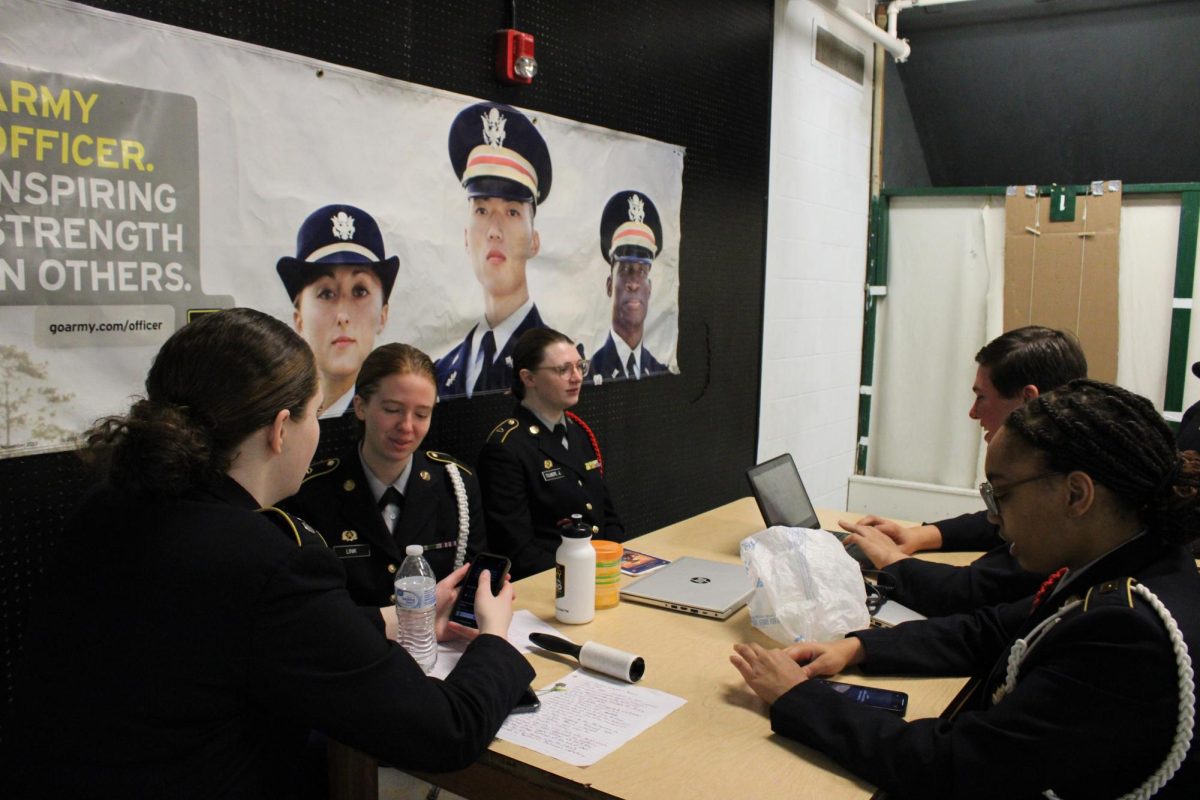For the past few months, select members of the Junior Reserve Officer Training Corps (JROTC) program have participated in a series of voluntary interviews that test various areas of their knowledge in the form of free-response questions.
This process is called Boards. JROTC students have the opportunity to go up for an award if they choose to. A panel of military-affiliated or retired military persons stage an interview-like process for competitors and ask questions from a range of topics from JROTC knowledge to a biography section.
“[Boards] is an interview based on various things like JROTC knowledge, so what the curriculum is about and questions like that,” Sarah Terhune (12) said. “They have a critical thinking section, so they’ll ask you ethical dilemmas or just any type of question that is more free response. They also have a current events section and a biography section where you can just talk about yourself.”
There are three different levels of Boards that participants go through: one within White Station High School (WSHS), one in a slightly larger group and one with the city of Memphis. Each level is a step for the next level.
“If you’re not having a position, you have to go through our battalion level first,” Terhune said. “So that’s competing with everybody in [WSHS]’s part of JROTC who chose to go up for it. Then what everybody went through, even people with positions had to go through brigade, which is what we just did here at the school. [Memphis] Shelby County Schools is split up into different mini-brigades and so that’s what brigade boards is — people in our specific tiny brigade. And core is with all four brigades, their winners from each brigade.”
Participants were given different study materials in order to prepare for any question they might be asked. They were encouraged to study in intervals and were monitored by check-ins from people in charge.
“Boards is a bunch of studying,” Libby Link (9) said. “The person in charge of this, she has made a bunch of Quizlets which I have used. There is a study guide, also the Director of Army Instructions sent out emails to us, including study guides which are usually paragraphs of information. I had a little booklet for my award specifically given to us by the National Park Service. It’s really anything you can find.”
The uniforms worn by contenders were also monitored, with several people verifying the specified measurements the day of. Terhune was among those checking uniforms for participants during the day.
“There are different measurements for each section of the uniform and I went around to different class periods or after school and made sure that all of their measurements were intact,” Terhune said. “You have to make adjustments the day of.”
Like with any situation in which judgment is given, stress was a part of the process. Nervousness, anxiety and even excitement were among the emotions experienced during Boards.
“I was really nervous,” Andrew Yount (11) said. “I think everybody will tell you the same thing. The first thing you feel is anxiety and your body stiffens up a little, but then as you look over the faces of the people conducting the board you realize they’re not that bad and you slowly relax a little. But there’s still that anxious tone in your voice.”
Boards is an opportunity that can prepare participants for future experiences like job interviews and presentations. It can help competitors gain qualities that will help advance them not only in JROTC but also in future positions of responsibility.
“We tell the first-year cadets that Boards is like a job interview so if they’re going up for a really high-level job in the future then this will definitely prepare them for that,” Yount said. “And also it’s really good for leadership. In Boards you need to sound confident which is one of the main qualities of a leader.”




































